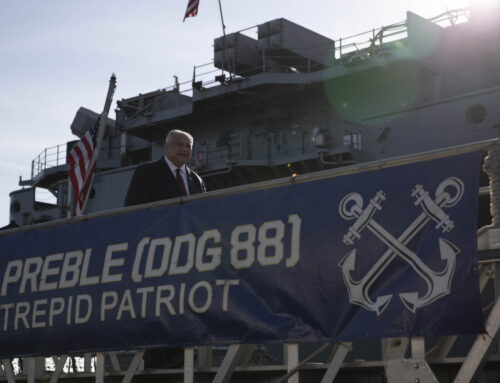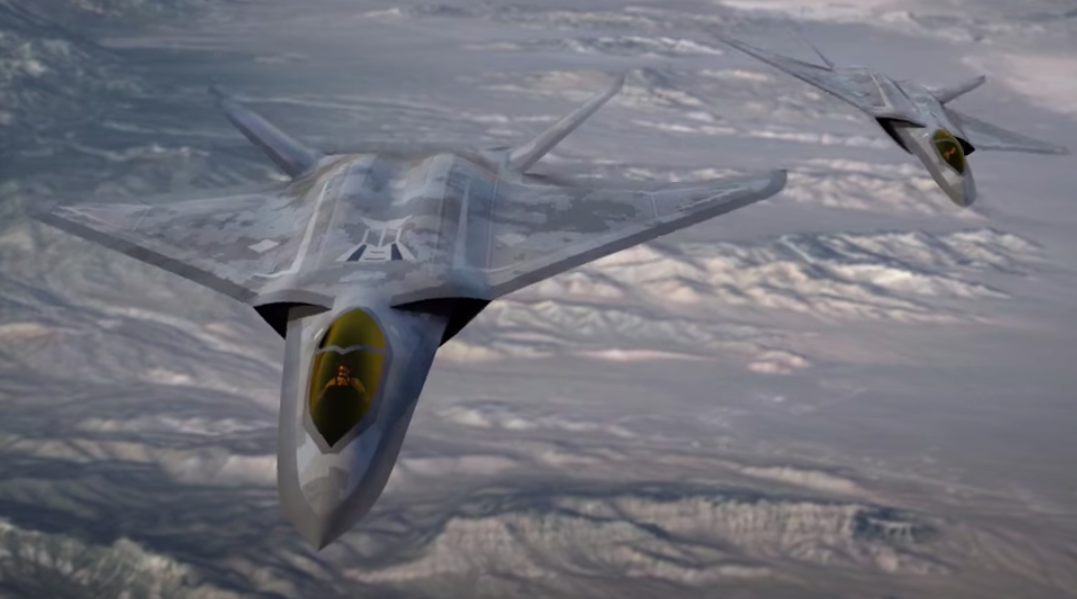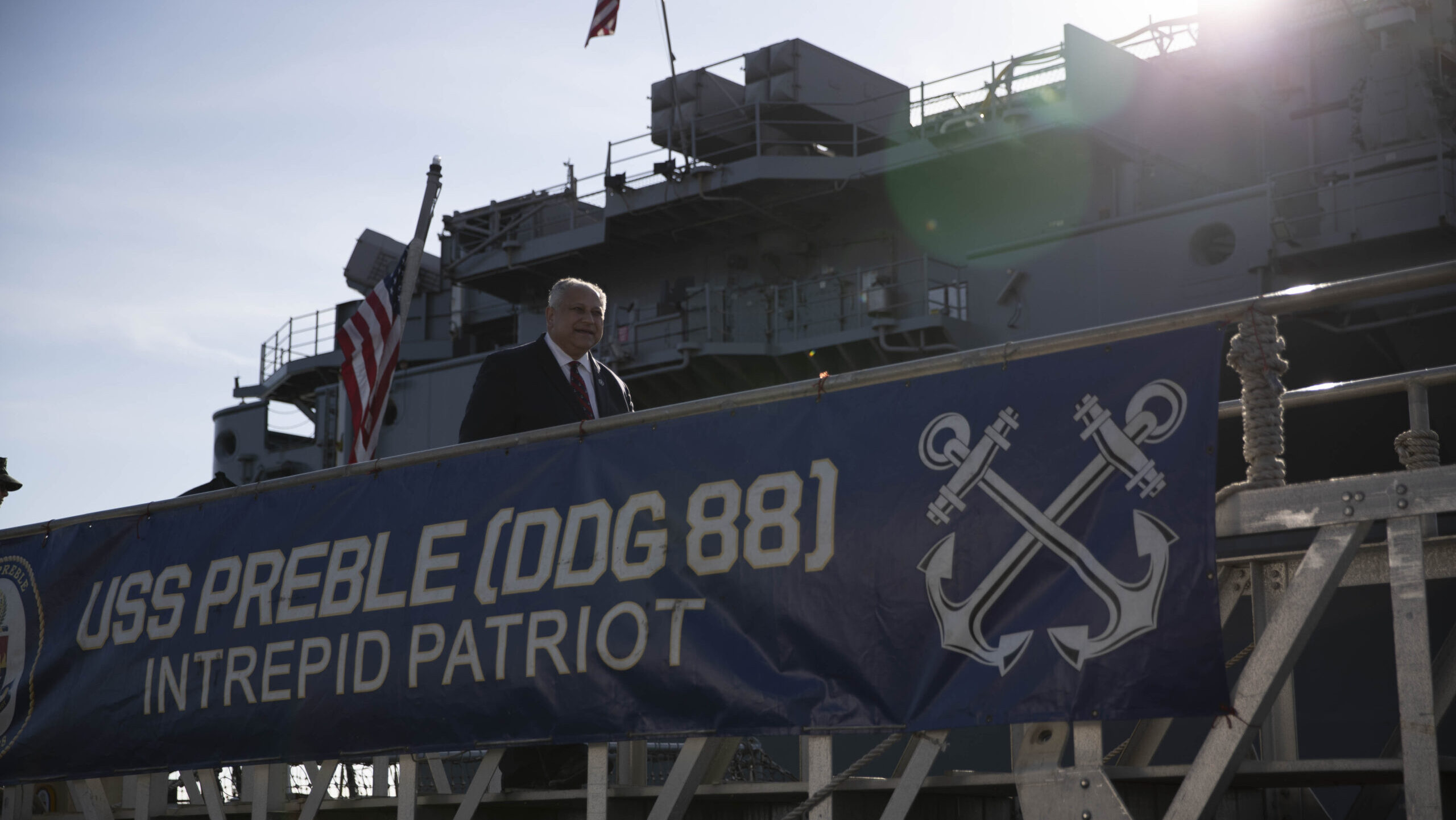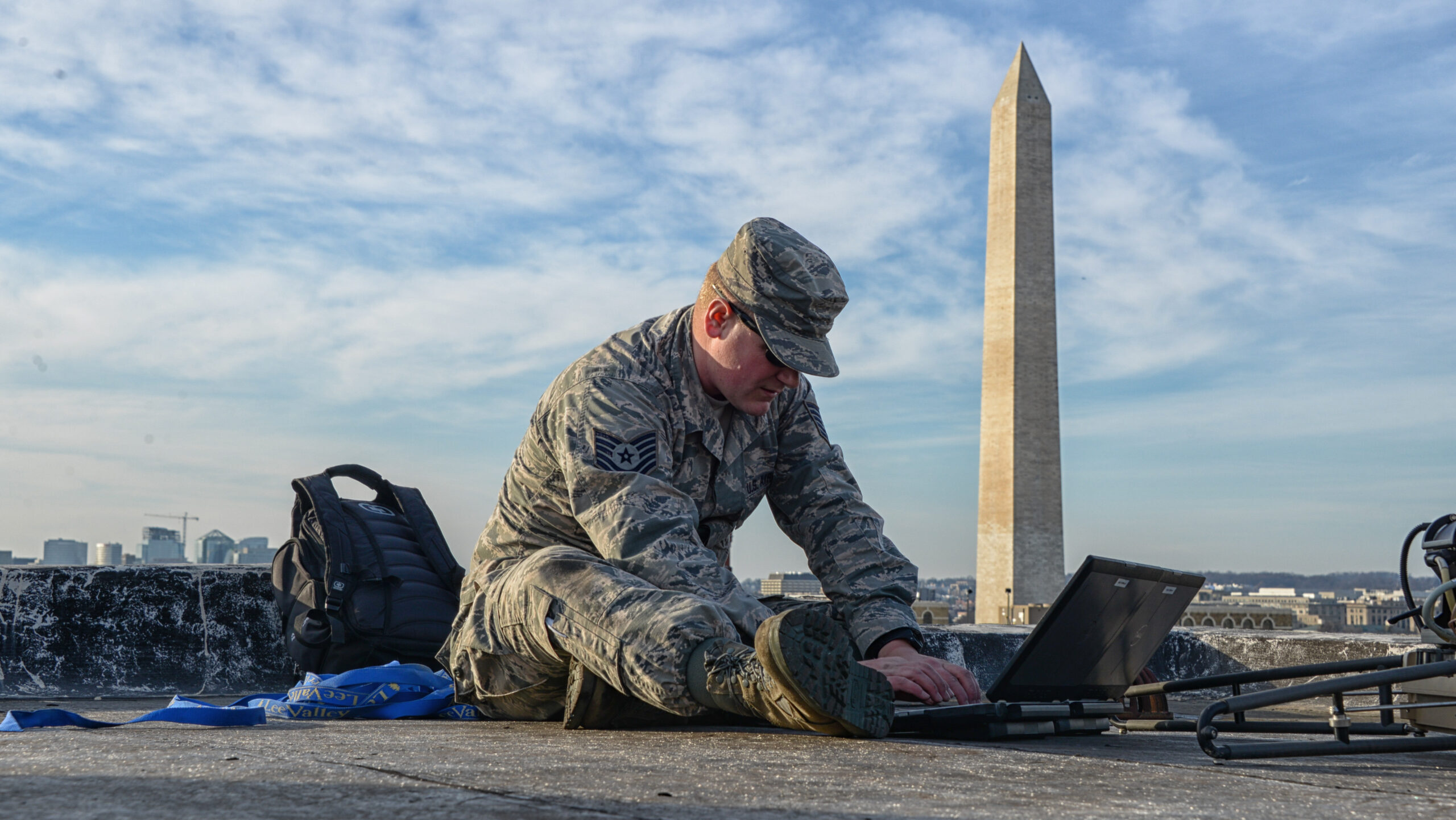This image grab from an AFP TV footage shows balls of fire and smoke rising above Gaza City during an Israeli strike on October 27, 2023, as battles between Israel and the Palestinian Hamas movement continue. (Photo by YOUSEF HASSOUNA/AFP via Getty Images)
JERUSALEM — The United Kingdom’s decision to suspend the export of more than two dozen defense articles to Israel is unlikely to affect its immediate war effort, but is symbolically important and could have further ramifications, analysts here told Breaking Defense.
On Monday the UK’s new government announced it would suspend exports of 30 items out of a total of 350 current arms licenses, with Foreign Minister David Lammy saying that while Jerusalem has the right to self-defense following Hamas’s deadly attack on Oct. 7, “we are deeply worried by the methods that Israel [has] employed, and by reports of civilian casualties and the destruction of civilian infrastructure particularly.”
Israeli officials quickly slammed the decision. “This comes at a time when we fight a war on seven different fronts — a war that was launched by a savage terrorist organization, unprovoked,” Israeli Minister of Defense Yoav Gallant said, adding that the decision was announced days after Israel located the bodies of six hostages murdered by Hamas in Gaza. He was “deeply disheartened” by the sanctions, he said in a statement from his office.
“A step like the one taken by the UK now sends a very problematic message to the Hamas terrorist organization and its backers in Iran,” Israeli Foreign Minister Israel Katz said. He maintained that “Israel is a law-abiding state that operates in accordance with international law and has an independent and respected judicial system.”
Richard Pater, the director of the Britain Israel Communications and Research Centre (BICOM), told Breaking Defense that the partial embargo was not totally unexpected, as there were “rumors that some form of re-assessment was coming down the track.” Tammy Caner, a researcher in the Law and National Security program at the Institute for National Security Studies (INSS), said it came in response to “pressure from the pro-Palestine elements within the [UK] Labour party, who wanted a total arms embargo.”
None of the experts who spoke with Breaking Defense were clear on which particular items will be affected for export, but in general British defense exports to Israel are thought to be around 1 percent of Israel’s defense imports. The licenses specifically don’t include items related to the F-35 fighter jet, which Israel has used frequently in the current war.
“Practically, the decision is limited, but it is symbolically concerning,” Pater said.
The UK has suspended arms shipments before. In 1969 it stopped sending Chieftain tanks to Israel, leading Jerusalem to indigineously develop the Merkava line of tanks, reserve Col. Hanan Shai of the Misgav Institute for National Security and Zionist Strategy pointed out. Shai points out that in the past Israel also found it could buy items it needed in other places. Caner says that the decision’s main impact, therefor, is diplomatic.
“It marks a policy change from the previous government and says a lot about the relations of the new government with the current government of Israel. This decision to partially suspend arms exports to Israel is followed by the decision to resume the funding of UNRWA and to drop the predecessor’s query of the International Criminal Court’s (ICC) jurisdiction to issue an arrest warrant for Israeli Prime Minister Benjamin Netanyahu and Defense Minister Yoav Gallant. The implementation will be more diplomatic and less about Israel’s security,” he said.
RELATED: Israel’s 3 biggest defense companies take stock after 5 months of war
Still, Caner, Pater and Shai said they see wider ramifications of the decision. Shai argued that the suspension can be seen as a larger break with the values that have historically tied Israel to the UK and US.
“There is another viewpoint that is important to understand and that is the cultural and ethical viewpoint. This is an opportunity to speak about it. Israel has close ethical ties to the UK and US,” he said. As such, punishing Israel through suspension of arms exports indicates a lack of support for Israel’s war on terror, harming this historic connection between the UK and Israel.
Pater echoed Katz in saying that geopolitically the UK is sending a “worrying message” to Iran and its proxies about Israel’s international support at a crucial time.
“Britain and Israel regard each other as close allies, and this is not how allies behave when Israel is fighting a defensive action on several fronts. In a world of gesture politics the perception that one of the key allies is pulling support gives a tailwind of a wrong and worrying message to Iran and its axis about Israel’s position in the international community,” he said. “That is the main concern. It is also a concern that a close ally is calling into question Israel’s work with International Humanitarian Law is deeply insulting; it means they don’t trust an ally that it is acting proportionately.”
RELATED: US special ops official lays out ‘strategic’ reason for Israel to better protect civilians
Pater argued that Israel is going “above and beyond to adhere to international law against an enemy.”
The US government, including President Joe Biden, has said Israel is not doing enough to protect civilians. The US has previously withheld some munitions, but for the most part has declined calls to stop the flow of significant military aid to Israel.
A real test of Britain’s relationship with Israel could come if there is another crisis with Iran, such as the attack in April when Iran launched more than 300 missiles and drones at Israel. The UK was among Israel’s allies who helped knock threats from the sky in that case.











